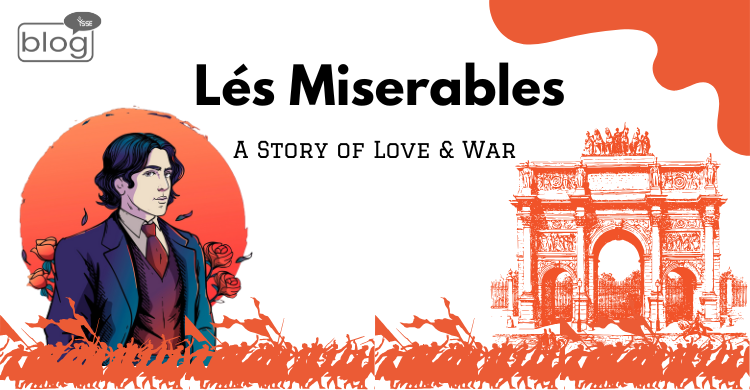Les Misérables is a novel by Victor Hugo, probably the most famous book in the world. This book narrates a story of justice, love, and redemption, located in 19th-century France.
It starts with the story of Jean Valjean, a poor man who is compelled to steal bread for his family to eat. He gets an extremely unfair sentence: 19 years in prison. He is treated cruelly by people because he is a convict. Then, years later, a meek bishop gets robbed by Valjean and takes it easy, being kind to him anyway. This incident changes his path to life. He now decides to turn over a new leaf in life and live kindly.
Valjean toils and grows rich, even going to the extent of becoming the mayor. However, all this he does after having broken his parole, and a policeman named Javert starts hunting him. As far as Javert is concerned, the law has absolutely no room for mercy. Their tussle is also one of the strong components of the story. While Valjean tries to help people along the way and lead his life in service of goodness, Javert will believe none of that and claim punishment for Valjean.
Another important character in the novel is Fantine, a poor woman who suffers because of the cruelty of society. She lost her job and became sick while trying to take care of her daughter, Cosette. Valjean promised to take care of Cosette after Fantine’s death. He raised Cosette as his own child, and their relationship was full of love and care.
It further describes the life struggles of common people when bad times come. The novel describes the lives of poor people, their hopes, and their sufferings. It reflects the young generation of revolutionists fighting for freedom in one place. Although their revolution was not successful, it inspired others with courage. Hugo uses these moments to talk about hope and the fight for a better future.
The story also involves Marius, a young man who falls in love with Cosette. Marius is part of a group of young men who take part in a revolution. The young men fight for their freedom and for justice, but ultimately the revolution fails. That part of the book becomes very emotional because many young men have died for their ideals.
Victor Hugo comments on social issues such as poverty, inequality, and injustice using the story. He portrays how difficult life is for the poor and weak. The book makes one reflect on how important love and forgiveness are. It also teaches that people can change for good if given a chance.
However, Les Misérables is not an easy book to read. It is very long and contains many details about history, politics, and other topics. Those parts are sometimes slow or boring, but they explain the background of the story. The language is also old-fashioned, which makes it harder to understand.
Though it is not easy, Les Misérables is a story of the power of kindness and love. It tells of how people can rise above struggles and make the world a better place. Sadness and hope abound in the book, and it always leaves a strong impression on any person who reads the book. If you have time and patience, this is one book worth reading; being a masterpiece, it imparts timeless lessons in life.
To read more blogs like this click here
Writer
Fazlul Karim,
Intern
Content Writing Department
YSSE.

